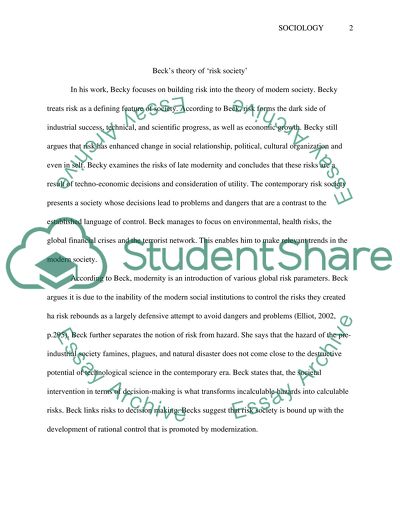Cite this document
(“CONTEMPORARY SOCIAL THEORY-Outline and explain Becks theory of risk Essay”, n.d.)
CONTEMPORARY SOCIAL THEORY-Outline and explain Becks theory of risk Essay. Retrieved from https://studentshare.org/sociology/1587948-contemporary-social-theory-outline-and-explain-becks-theory-of-risk-society-and-consider-to-what-extent-it-provides-an-adequate-view-of-contemporary-society
CONTEMPORARY SOCIAL THEORY-Outline and explain Becks theory of risk Essay. Retrieved from https://studentshare.org/sociology/1587948-contemporary-social-theory-outline-and-explain-becks-theory-of-risk-society-and-consider-to-what-extent-it-provides-an-adequate-view-of-contemporary-society
(CONTEMPORARY SOCIAL THEORY-Outline and Explain Becks Theory of Risk Essay)
CONTEMPORARY SOCIAL THEORY-Outline and Explain Becks Theory of Risk Essay. https://studentshare.org/sociology/1587948-contemporary-social-theory-outline-and-explain-becks-theory-of-risk-society-and-consider-to-what-extent-it-provides-an-adequate-view-of-contemporary-society.
CONTEMPORARY SOCIAL THEORY-Outline and Explain Becks Theory of Risk Essay. https://studentshare.org/sociology/1587948-contemporary-social-theory-outline-and-explain-becks-theory-of-risk-society-and-consider-to-what-extent-it-provides-an-adequate-view-of-contemporary-society.
“CONTEMPORARY SOCIAL THEORY-Outline and Explain Becks Theory of Risk Essay”, n.d. https://studentshare.org/sociology/1587948-contemporary-social-theory-outline-and-explain-becks-theory-of-risk-society-and-consider-to-what-extent-it-provides-an-adequate-view-of-contemporary-society.


